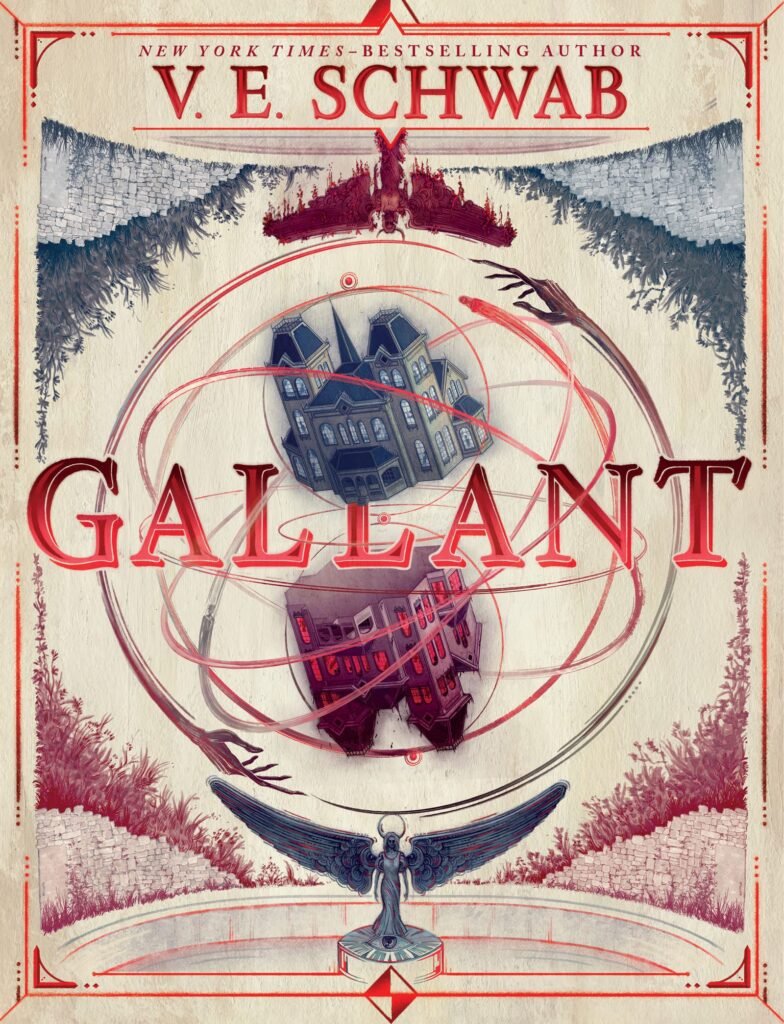A Journey Through Shadows: My Thoughts on "Gallant" by V.E. Schwab
When I first picked up “Gallant” by V.E. Schwab, I was drawn in by the allure of the mysterious and the promise of a unique narrative—after all, this is the author who crafted such immersive worlds in her previous works that I’ve absolutely adored. Yet, as I turned the pages, what I found echoed a series of familiar tropes that I struggled to connect with.
At its heart, “Gallant” tells the tale of Olivia Prior, a girl raised in the shadowy walls of Merilance School for girls, navigating the haunting legacy of her mother through a journal spiraling into madness. When an invitation to her uncle’s estate, Gallant, arrives, it feels tantalizingly like a promise of home—only to land Olivia in an unsettling dance of secrets and half-formed ghouls. Though the premise held the spark of potential, I found myself feeling eerily repetitive echoes of stories I’d read before.
One quote that lingered with me was, “Safe does not mean happy, does not mean well, does not mean kind.” This encapsulates the book’s deeper themes of isolation and the pursuit of belonging, yet it seemed to hover on the surface for me. Olivia’s journey through Gallant is riddled with themes of abandonment, neglect, and ultimately, the fight for freedom—elements that could have been poignant yet felt overshadowed by the overwhelming sameness of Schwab’s signature style.
The writing itself, while undeniably lyrical and rich, often bordered on meandering. The pacing felt tired, as if the plot was taking a leisurely stroll while I was wishing for a sprint. I was left yearning for moments of suspense or gripping twists, but alas, they barely made an appearance. “Every house has secrets,” the book suggests, yet the secrets in Gallant felt so familiar and predictable that their revelations hardly shook me.
In terms of character depth, Olivia certainly embodies a compelling protagonist archetype—quiet yet persistent, yearning for sound when silenced. However, surrounding her are characters that almost fade into the wallpaper of Gallant itself, lacking the nuanced backstories or dynamic traits that could have elevated their presence and made the stakes feel truly personal.
The haunting elements—ghouls, magic, a villain lurking in the shadows—could have lent a thrilling tension, yet they often slipped into the background when they should have been compelling. It’s a shame, as the potential for a richly woven narrative was undeniably there.
As I reflect on my reading journey through “Gallant,” I can’t shake the feeling that it was meant to offer something profound, but it fell short of truly resonating with me. While this book may still find a home with readers looking for a quick, atmospheric read, it didn’t quite satisfy my cravings for depth or novelty.
If you’re a fan of V.E. Schwab’s previous works and feel drawn to the themes of isolation and belonging, it might still be worth your time. Just be prepared for familiar territory—one that may feel all too safe. For me, it was a moment of disappointment, leading to a contemplation of what I hope to see in my next literary adventure.
Have you read “Gallant?” I would love to hear your thoughts and whether the haunting beauty of Schwab’s prose resonated with you in ways it didn’t for me!
[ad_2]







